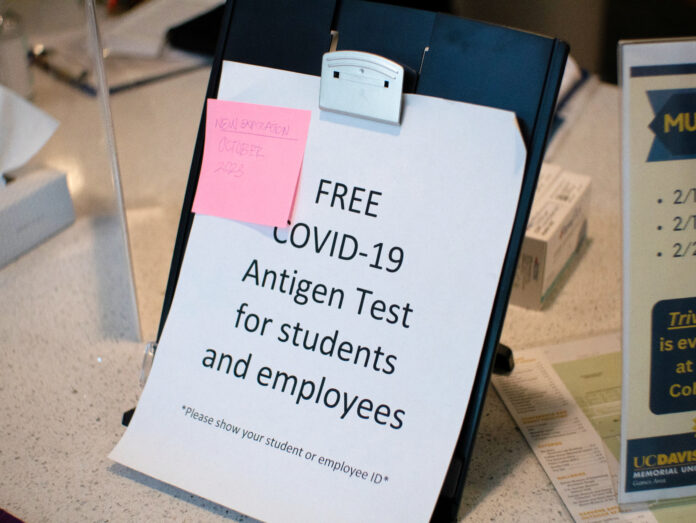The university put an end to its pandemic public health policy on Feb. 28
By KAYA DO-KHANH — campus@theaggie.org
On Feb. 28, UC Davis ended its COVID-19 state of emergency alongside the state of California, according to a letter from Chancellor Gary May on Feb. 17. The campus also ended its Interim Public Health Policy 290-01, which was aligned with county, state and federal guidance to prevent the spread of COVID-19 on campus, in addition to ending the daily symptom survey.
“While we still have infections in our community, the impact on our lives is much different from when the pandemic started three years ago,” May said in the letter. “Disease prevention has shifted in that time from public health requirements to individual responsibility.”
Additional rules that will end with the ceasing of Public Health Policy 290-01 include requiring the reporting of positive COVID-19 cases, restrictions on events for visitors or volunteers and “Campus Ready” signs and floor markings.
Regardless, the letter strongly encourages community members to continue to report positive cases of COVID-19 and to take tests when necessary.
The university announced that by Feb. 28, students and staff should also be up to date on booster shots or submit a declination form in Health-e-Messaging. Students can schedule free appointments for Pfizer vaccinations and booster shots at the Student Health and Wellness Center through the Health-e-Messaging portal.
The free distribution of rapid antigen test kits will continue through the end of the academic year at the Memorial Union information desk, student residence halls and the front desks at the ARC and Shields Library.
“Contrast those dark early days of the pandemic with today’s COVID-19 reality: we have learned a lot about the SARS-CoV-2 virus; antigen tests are widely available and provide results in 15 minutes; safe and effective vaccines are available; safe and effective oral treatments are available; and we have enough PPE for healthcare workers along with high-quality masks for the general public,” Yolo County’s health officer Dr. Aimee Sisson said in a recent press release. “We are in a very different place than we were in March of 2020, and one where it is appropriate to end the COVID-19 emergencies.”
Written by: Kaya Do-Khanh — campus@theaggie.org










